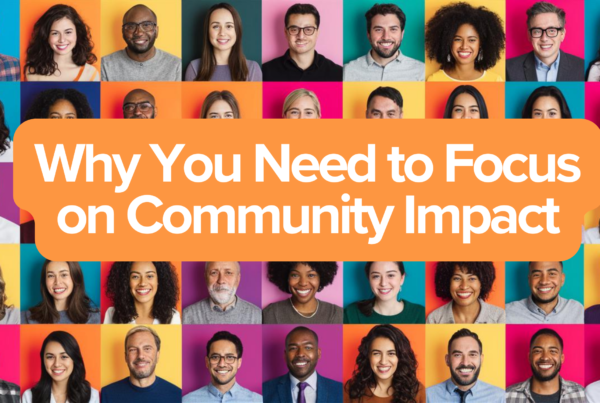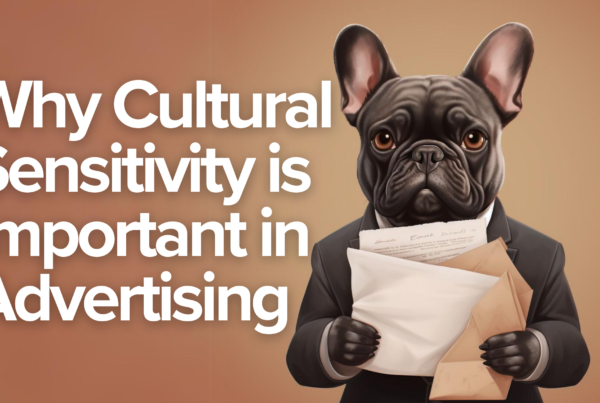Key Takeaways:
- Sustainability is more than a trend, influencing global consumer choices and reshaping industries.
- Businesses face pressure to address climate issues, integrating sustainable practices is crucial for brand loyalty and profitability.
- Baby Boomers and Gen X actively contribute to the sustainability movement through advocacy, informed consumer choices, and educational initiatives.
- Adapting marketing strategies to engage Baby Boomers and Gen X involves tailored messaging, educational content, inclusive representation, legacy highlighting, and exploring collaboration opportunities.
In recent years, the buzz around sustainable living has grown louder, making it more than just a passing trend. The urgency to address environmental concerns has propelled sustainability into the mainstream, influencing consumer choices, corporate strategies, and even shaping marketing landscapes.
Sustainable Living – A Trend?
- Is sustainable living just another passing trend, or is it here to stay? We explore the roots of this movement and the factors contributing to its enduring appeal. From eco-friendly practices to conscious consumerism, sustainable living is reshaping our daily lives and societal norms.
- Global sustainability trends are poised to bring about significant positive changes, driven by insights from 42 professional experts. The increase in renewable energy sources, particularly solar and wind power, is expected to be a prominent trend, with the use of technologies like heat pumps and solar panels offering both environmental benefits and cost savings. Recycling efforts are set to intensify, fueled by consumer demand and government recycling targets, especially in plastic packaging. The focus on improved transport and infrastructure, reduction of food waste through composting, and the surge in second-hand purchases reflect a growing commitment to eco-friendly practices. The adoption of sustainable materials, including bamboo and organic cotton, is becoming more widespread, influencing industries from fashion to home construction.
- Brand responsibility and transparency are gaining importance, as businesses face pressure to address climate issues, and consumers become more discerning about sustainability claims. The integration of climate-positive technology, such as electric cars and energy-efficient appliances, is expected to play a crucial role in reducing carbon footprints. The rise of remote work is contributing to lower carbon emissions, and plant-based and alternative foods are gaining popularity for their environmental and health benefits. Overall, these trends signify a collective global effort toward a more sustainable and environmentally conscious future.

Why is Sustainability Important for brands?
- Beyond being a popular buzzword, we need to focus on critical reasons behind the importance of sustainability. From mitigating climate change to preserving biodiversity, understanding the environmental, social, and economic impact of sustainable practices is crucial for fostering a more resilient and equitable future.
- Sustainability holds paramount importance for organizations, impacting various facets of their operations. Firstly, it enhances brand loyalty by resonating with environmentally and socially conscious consumers. By aligning brand image with broader missions, such as combating climate change, organizations can foster customer retention and drive revenue, as loyal customers often make frequent purchases. Secondly, sustainable marketing contributes to improved employee engagement. Organizations prioritizing Environmental, Social, and Governance (ESG) practices create a positive work environment, fulfilling employees who value sustainability. Social sustainability policies, like flexible paid time-off, enhance work satisfaction and reduce turnover. Thirdly, sustainability supports regulatory compliance, ensuring organizations meet evolving ESG regulations. For instance, reducing greenhouse gas emissions aligns with directives like the EU’s corporate sustainability reporting and potential expansions proposed by the U.S. Security and Exchange Commission. Lastly, sustainable practices, despite perceived upfront costs, boost profits through operational cost reduction and increased attractiveness to investors employing ESG ratings. Embracing sustainable marketing not only makes organizations competitive but also ensures authenticity to prevent potential pitfalls like greenwashing. Consultation with sustainability experts can guide organizations in implementing effective ESG initiatives.
Brands Embracing this Movement
- Several notable brands, including IKEA, H&M, and Adidas, have actively embraced sustainability, incorporating eco-friendly practices into their operations and marketing strategies.
IKEA: - IKEA, the Swedish multinational furniture retailer, has been a frontrunner in sustainability initiatives. The company is committed to using renewable and recycled materials in its products, aiming for 100% circular and climate-positive operations by 2030. IKEA’s sustainable practices include the use of responsibly sourced wood, energy-efficient appliances, and the development of affordable solar panels. By aligning with eco-friendly values, IKEA not only attracts environmentally conscious consumers but also strengthens its brand reputation for corporate responsibility.
H&M: - H&M, a global fashion giant, has undertaken various sustainability measures to address the environmental impact of the fashion industry. The company launched the “Conscious Collection,” featuring clothing made from sustainable materials like organic cotton and recycled polyester. H&M also focuses on circular fashion, encouraging customers to recycle old clothing through in-store collection programs. By promoting sustainability in its supply chain and product offerings, H&M appeals to consumers seeking ethical and eco-conscious fashion choices, thus building brand loyalty and staying ahead in the competitive retail market.
Adidas: - Adidas, a major sportswear brand, has made significant strides in sustainable practices. The company has committed to using only recycled polyester in its products by 2024, reducing plastic waste and the environmental footprint of its sportswear. Adidas has also introduced sustainable sneaker lines, such as the “Futurecraft Loop,” a fully recyclable shoe. By integrating sustainable materials and manufacturing processes, Adidas not only attracts environmentally aware consumers but also positions itself as an innovator in the athletic apparel industry, gaining positive attention and support.
How It Helps Them: - For these brands, embracing sustainability is not just a corporate responsibility but also a strategic business move. By aligning with eco-friendly values, they attract a growing segment of consumers who prioritize environmental and social consciousness in their purchasing decisions. This commitment to sustainability enhances brand loyalty, as consumers appreciate and support businesses that actively contribute to positive environmental change. Additionally, these brands often enjoy positive media coverage and public relations benefits, fostering a favorable image that can differentiate them from competitors. Beyond ethical considerations, these sustainable practices can also lead to operational efficiencies, cost savings, and increased competitiveness in a market where consumers are increasingly valuing environmentally friendly choices.
Generations Embracing and Asking for Sustainability:
Contrary to common stereotypes, the wave of sustainability is not confined to millennials and Gen Z; it extends across generations, including Baby Boomers and Gen X. This surprising shift in mindset is indicative of a broader societal change where individuals from diverse age groups are recognizing the importance of environmentally conscious living.

- Reasons behind the Shift:
- Environmental Awareness: Baby Boomers and Gen X individuals are increasingly aware of environmental issues, including climate change, deforestation, and biodiversity loss. Witnessing the tangible impact of these issues over the years has fueled a sense of responsibility to contribute positively.
- Health and Well-being: The emphasis on sustainable living for these generations extends beyond environmental concerns. Many are drawn to the health and well-being benefits associated with a sustainable lifestyle, such as consuming organic foods and reducing exposure to harmful chemicals.
- Legacy and Future Generations: Baby Boomers, in particular, often express a desire to leave a positive legacy for future generations. This perspective drives their commitment to sustainability as a way of ensuring a better world for their children and grandchildren.
- Contributions to the Sustainability Movement:
- Advocacy and Activism: Baby Boomers and Gen X are actively engaging in advocacy and activism for sustainable causes. They participate in environmental movements, support eco-friendly policies, and join community initiatives aimed at promoting sustainable practices.
- Consumer Choices: These generations are making informed and sustainable consumer choices. Whether it’s opting for products with eco-friendly packaging, supporting local and sustainable brands, or making conscious decisions about energy consumption, Baby Boomers and Gen X are aligning their choices with sustainable values.
- Educational Initiatives: Some individuals from these generations are involved in educational initiatives, sharing their knowledge and experiences related to sustainable living. This includes workshops, community seminars, and online platforms where they contribute to raising awareness and inspiring others.
What Does This Mean?
As sustainability becomes a significant factor influencing consumer choices, businesses must recalibrate their marketing strategies to effectively engage with Baby Boomers and Gen X. Here are some key considerations:
- Tailored Messaging: Craft marketing messages that resonate with the values and priorities of Baby Boomers and Gen X. Highlight the long-term impact of sustainable choices on the environment, health, and future generations.
- Educational Content: Provide informative content that addresses any misconceptions or uncertainties these generations may have about sustainable practices. Emphasize the positive effects of individual actions on a larger scale.
- Inclusive Representation: Ensure marketing materials feature diverse age groups, called multicultural marketing. This representation fosters a sense of inclusivity and relatability.
- Highlighting Legacy: Appeal to the desire for leaving a positive legacy by showcasing how sustainable choices contribute to a better world for future generations. Connect the dots between individual actions and a lasting impact.
- Collaboration Opportunities: Explore partnerships with influencers, activists, or organizations that resonate with Baby Boomers and Gen X. Collaborative efforts can amplify the message of sustainability and reach a broader audience.
In essence, adapting marketing strategies to accommodate the growing interest in sustainability among Baby Boomers and Gen X involves a nuanced understanding of their values, concerns, and aspirations. By doing so, businesses can effectively connect with these demographics and contribute to the broader movement towards a more sustainable future.
Sustainable living is not merely a trend but a transformative movement reshaping the way we live, consume, and do business. Understanding its importance, acknowledging the efforts of brands leading the way, recognizing generational shifts, and adapting marketing strategies accordingly are crucial steps in fostering a sustainable future for generations to come. By taking simple steps in our daily lives, each one of us can play a part in this collective journey towards a more sustainable and harmonious world.





